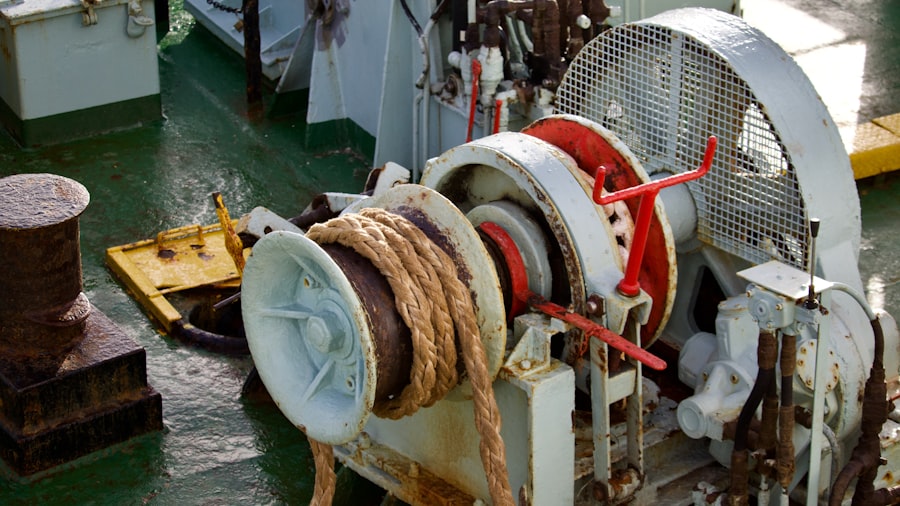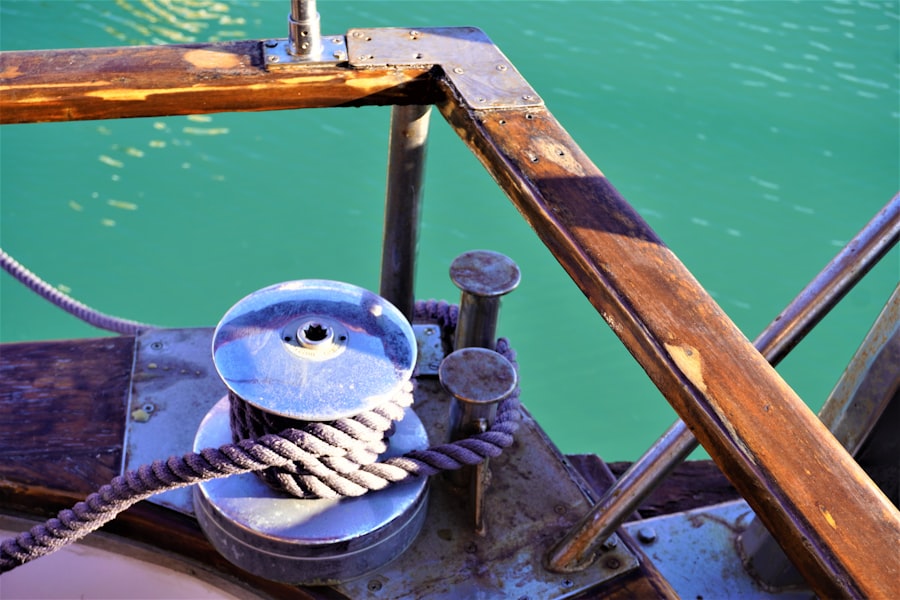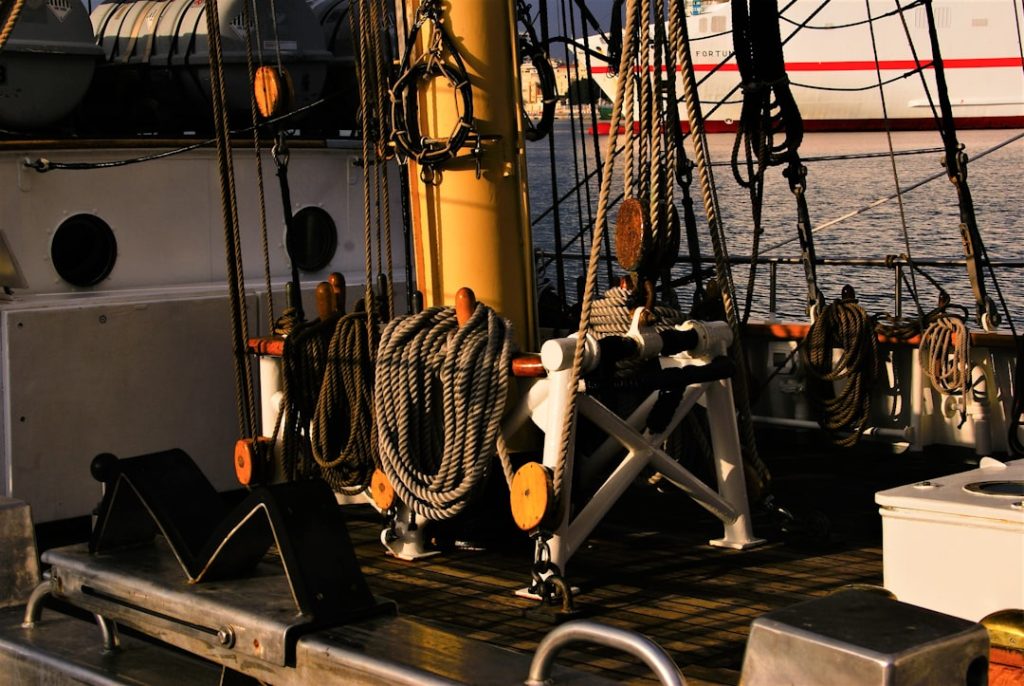Outboard engines are a pivotal component of many recreational and commercial watercraft, providing the necessary propulsion to navigate lakes, rivers, and oceans. These engines are distinct in that they are mounted externally on the transom of a boat, allowing for easier maintenance and replacement compared to inboard engines. Outboard engines come in various configurations, including two-stroke and four-stroke models, each with its own set of advantages and disadvantages.
Two-stroke engines are often lighter and provide more power for their size, making them popular for smaller boats and high-performance applications. Conversely, four-stroke engines are generally more fuel-efficient and environmentally friendly, producing fewer emissions and noise. The mechanics of an outboard engine involve a combination of internal combustion and a propeller system that converts the engine’s power into thrust.
The engine’s design allows for a compact and lightweight solution that can be easily tilted out of the water when not in use, preventing corrosion and damage from saltwater exposure. Additionally, outboard engines can be equipped with various features such as electric start, power tilt and trim, and advanced fuel injection systems, enhancing their usability and performance. Understanding these fundamental aspects is crucial for anyone looking to purchase or maintain an outboard engine.
Key Takeaways
- Understand the basics and types of outboard engines before purchasing.
- Consider factors like engine size, power, fuel efficiency, and boat compatibility.
- Research reputable brands to ensure reliability and performance.
- Compare prices and features from various sellers to find the best deal.
- Maintain your outboard engine regularly to extend its lifespan and efficiency.
Factors to Consider When Buying Outboard Engines
When considering the purchase of an outboard engine, several critical factors must be taken into account to ensure that the selected engine meets the specific needs of the boat and its intended use. One of the primary considerations is the engine’s horsepower, which should be matched to the size and weight of the boat. An underpowered engine may struggle to perform adequately, especially in challenging conditions, while an overpowered engine can lead to safety issues and increased fuel consumption.
Manufacturers often provide guidelines on the appropriate horsepower range for different boat sizes, which can serve as a valuable reference point. Another important factor is the type of fuel the engine uses. While traditional gasoline engines are common, there is a growing trend towards more environmentally friendly options such as electric outboard motors.
Electric engines offer quiet operation and zero emissions but may have limitations in terms of range and power output compared to their gasoline counterparts. Additionally, potential buyers should consider the engine’s weight, as this can affect the boat’s balance and performance. A heavier engine may require additional structural support or modifications to the boat, while a lighter engine can enhance speed and maneuverability.
Researching Outboard Engine Brands

The market for outboard engines is populated by numerous brands, each offering a range of models with varying features and specifications. Some of the most reputable brands include Yamaha, Mercury, Honda, Suzuki, and Evinrude. Each brand has its own unique selling points; for instance, Yamaha is known for its reliability and advanced technology, while Mercury often emphasizes performance and innovation.
Researching these brands involves examining customer reviews, expert opinions, and performance tests to gauge their reputation in the industry. In addition to brand reputation, it is essential to consider the availability of parts and service support. Some brands have extensive dealer networks that provide easy access to replacement parts and maintenance services, which can be a significant advantage for boat owners.
Furthermore, warranty offerings can vary significantly between manufacturers; a robust warranty can provide peace of mind and protect against potential defects or issues that may arise after purchase. Engaging with online forums or local boating communities can also yield valuable insights into brand performance and user experiences.
Where to Find Quality Outboard Engines for Sale
| Source | Type of Engines | Price Range | Warranty | Customer Rating | Location | Additional Services |
|---|---|---|---|---|---|---|
| Authorized Dealerships | New, Certified Pre-Owned | 1500 – 15000 | 1-5 years | 4.5/5 | Nationwide | Installation, Maintenance, Financing |
| Online Marketplaces (eBay, Craigslist) | Used, Refurbished | 500 – 8000 | Varies by seller | 3.8/5 | Global | Buyer Protection, Shipping |
| Marine Supply Stores | New, Aftermarket Parts | 1200 – 12000 | 1-3 years | 4.2/5 | Local/Regional | Technical Support, Installation |
| Boat Shows & Expos | New, Demo Models | 2000 – 14000 | 1-5 years | 4.6/5 | Various Locations | Discounts, Expert Advice |
| Manufacturer Websites | New | 1800 – 16000 | 3-5 years | 4.7/5 | Global | Direct Support, Custom Orders |
Finding quality outboard engines for sale requires a strategic approach that encompasses both new and used options. Authorized dealerships are often the best starting point for purchasing new engines, as they typically offer a wide selection of models along with manufacturer warranties and support services. These dealerships often have knowledgeable staff who can assist in matching an engine to specific boating needs.
Additionally, many manufacturers have online platforms where consumers can locate nearby dealers or browse available inventory. For those considering used outboard engines, online marketplaces such as eBay, Craigslist, or specialized boating websites can be excellent resources. However, purchasing used equipment comes with inherent risks; it is crucial to thoroughly inspect any used engine for signs of wear or damage before finalizing a purchase.
Asking for maintenance records or service history can provide insight into how well the engine has been cared for over its lifespan. Local boat shows or marine expos also present opportunities to find quality outboard engines while allowing potential buyers to interact directly with sellers and ask pertinent questions.
Comparing Prices and Features of Outboard Engines
When evaluating outboard engines, price comparison is an essential step in making an informed decision. Prices can vary significantly based on factors such as brand reputation, engine size, features, and whether the engine is new or used. It is advisable to create a list of potential engines that meet specific requirements and then compare their prices across different retailers or platforms.
This process not only helps identify competitive pricing but also highlights any additional costs associated with installation or accessories. In addition to price, comparing features is equally important. Some engines come equipped with advanced technologies such as digital throttle control, integrated fuel management systems, or enhanced cooling systems that can improve performance and efficiency.
Buyers should consider which features are essential for their intended use; for example, those who frequently navigate rough waters may prioritize durability and reliability over other features. Reading product specifications and user reviews can provide valuable insights into how well these features perform in real-world conditions.
Tips for Maintaining Outboard Engines

Proper maintenance is crucial for ensuring the longevity and performance of outboard engines. Regular maintenance tasks include checking the oil levels, inspecting fuel lines for leaks or cracks, and ensuring that the propeller is free from debris or damage. It is also essential to flush the engine with fresh water after each use in saltwater environments to prevent corrosion from salt deposits.
This simple step can significantly extend the life of the engine’s components. Additionally, seasonal maintenance should be performed before launching the boat each year. This includes changing the oil and oil filter, replacing spark plugs, and inspecting the battery condition.
Keeping a detailed maintenance log can help track service intervals and remind owners when specific tasks are due. For those who may not feel comfortable performing maintenance themselves, seeking assistance from a qualified marine technician can ensure that all necessary tasks are completed correctly.
Choosing the Right Outboard Engine for Your Boat
Selecting the right outboard engine involves a careful assessment of both the boat’s specifications and the intended use of the vessel. Factors such as boat size, weight capacity, and hull design play a significant role in determining which engine will provide optimal performance. For instance, a lightweight skiff may require a smaller engine for efficient operation, while larger vessels designed for offshore fishing may necessitate a more powerful engine to handle rough seas.
Additionally, considering how the boat will be used—whether for leisurely cruising, fishing expeditions, or water sports—can influence engine choice. For example, those interested in water skiing may prefer an engine with higher horsepower for quick acceleration, while casual cruisers might prioritize fuel efficiency over raw power. Engaging with experienced boaters or consulting with marine professionals can provide valuable guidance in making this decision.
Benefits of Investing in a Quality Outboard Engine
Investing in a quality outboard engine offers numerous benefits that extend beyond mere performance metrics. A well-constructed engine from a reputable brand typically translates into greater reliability on the water, reducing the likelihood of breakdowns during critical moments. This reliability is particularly important for commercial operators who depend on their vessels for income-generating activities such as fishing or charter services.
Moreover, quality outboard engines often come equipped with advanced technologies that enhance fuel efficiency and reduce emissions. This not only contributes to lower operating costs but also aligns with growing environmental concerns regarding marine pollution. Additionally, many high-quality engines offer better resale value due to their durability and brand reputation; this can be an important consideration for boaters who may wish to upgrade in the future.
Ultimately, investing in a quality outboard engine is not just about immediate performance; it is about ensuring long-term satisfaction and peace of mind on the water.


